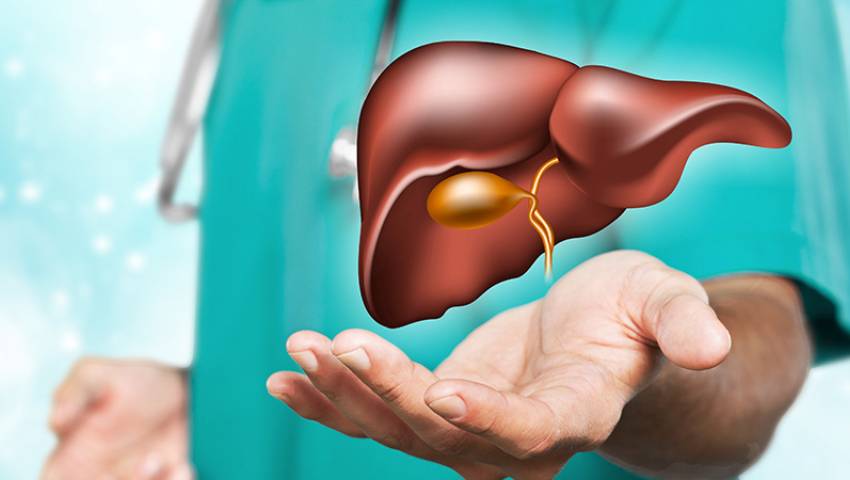
- 05/09/2024
- Dr. Srivatsan Gurumurthy
- 0 Comments
- Blog
FAQ’s About Liver Transplantation: What Patients and Families Need to Know?
Liver transplantation is a difficult and life-saving procedure for someone suffering from severe liver disease. If you or a loved one is considering or preparing for a liver transplant, you likely have multiple questions. Dr. Srivatsan Gurumurthy, a recognised specialist in liver disease treatment and liver transplant surgery in Chennai, delivers answers to some of the most frequently asked questions about liver transplantation.
Liver transplantation is a surgical procedure in which a diseased liver is replaced with a healthy liver from a donor. This procedure is typically suggested for patients with end-stage liver disease or acute liver failure when other therapies are no longer useful.
Candidates for liver transplantation typically include someone with:
- End-stage liver disease due to conditions such as cirrhosis, hepatitis B or C, or alcoholic liver disease.
- Acute liver failure from causes such as drug toxicity or sudden liver disease.
- Liver cancer, when the cancer is confined to the liver and meets specific criteria.
Your medical team will assess your overall health, liver function, and the presence of other conditions to choose if you are a suitable nominee.
The decision for a liver transplant is made by a team of specialists, including hepatologists, transplant surgeons, and other Liver specialists. They assess the severity of your liver disease, your overall health, and the potential benefits of the transplant versus the risks.
There are two main types of liver transplants:
- Deceased Donor Transplant: The liver comes from a person who has recently died. This is the most common type of transplant.
- Living Donor Transplant: The liver is taken from a living person, usually a close relative or friend. Only a portion of the liver is removed, and both the donor and recipient's liver will regenerate over time.
To be listed for a liver transplant, you will need to undergo a thorough evaluation process, containing:
- Medical checks and tests to determine liver function and overall health.
- Psychological evaluations to ensure you are mentally prepared for the transplant.
- Financial reviews to understand the cost and coverage for the procedure.
Once the evaluation is complete, you will be placed on the transplant waiting list based on the severity of your condition and other medical factors.
The waiting time for a liver transplant can vary widely depending on aspects such as the availability of donor livers, your blood type, and the urgency of your medical condition. A few patients might stand by weeks to months, or much longer, for a proper donor liver.
During the liver transplant surgery:
- The patient is placed under general anesthesia.
- The surgeon removes the diseased liver and returns it to the donor's liver.
- The new liver is connected to the patient's blood vessels and bile ducts.
- The surgery usually takes several hours and is performed in a specialized operating room.
While liver transplantation can be life-saving, it arrives with risks and possible difficulties, including:
- Rejection: The body's immune system may identify the new liver as foreign and try to attack it.
- Infection: Post-surgery drugs can weaken the immune system, increasing the risk of infections.
- Bleeding and Clotting: Surgery can cause bleeding and blood clots.
- Graft Dysfunction: The new liver may not function properly.
Your liver specialist will screen you intently for these and other possible issues.
Recovery after a liver transplant involves:
- Hospital Stay: Most patients stay in the hospital for about 1-2 weeks following the surgery.
- Medications: You will need to take immunosuppressive medications to prevent organ rejection and other prescribed medications for post-operative care.
- Follow-up Visits: Regular checkup meetings with your transplant team are important to monitor liver function and overall health.
- Lifestyle Adjustments: You may need to make lifestyle changes, including a level diet, Stopping alcohol, and sticking to medication plans.
Liver transplantation can greatly improve quality of life by alleviating signs of liver disease, increasing energy levels, and improving overall health. Many patients can return to their regular activities and lead fulfilling lives post-transplant. However, it's important to keep normal medical check-ups and stick to specified therapies to ensure long period success.
Support is available through:
- Transplant Coordinators: They help manage the transplant process and provide advice.
- Social Workers and Counselors: They offer emotional support and help with practical concerns.
- Support Groups: Joining a support group can link you with others who have undergone equal experiences.
Preparation involves:
- Educating Yourself: Learn about the transplant process, potential risks, and post-operative care.
- Financial Planning: Understand the costs affected and explore insurance coverage and financial service choices.
- Support System: Select an encouraging group of people or loved ones to help during the healing period.
Conclusion:
Liver transplantation is an important medical procedure that offers hope to many patients with severe liver diseases. By understanding the process, risks, and recovery, patients and their families can better prepare for the journey ahead. Dr. Srivatsan Gurumurthy is the best Liver Failure Treatment in Chennai and his team is devoted to delivering complete care and support throughout the liver transplantation process, ensuring the best possible results for their patients.
If you have any more questions or need personalized advice, don’t hesitate to reach out to Dr. Srivatsan Gurumurthy at GEM Hospital. For more information or to schedule a talk with Dr. Srivatsan Gurumurthy, please contact our Clinic.
